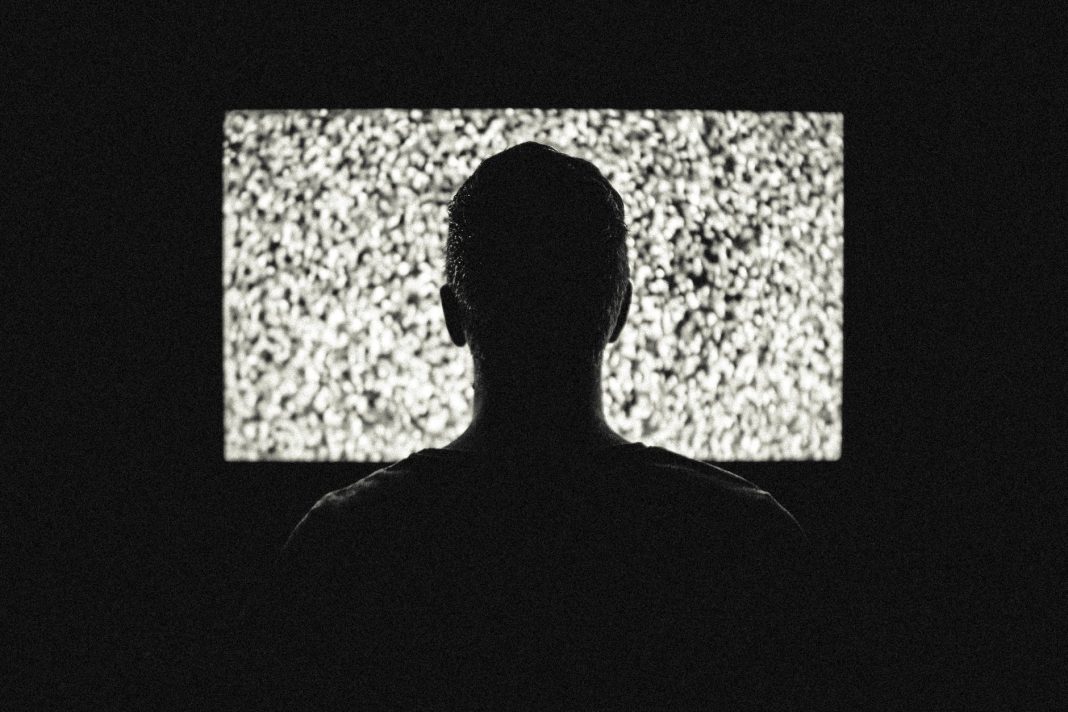 |
|
| Issue #44 • March/April, 1997 |
Dave’s poker playing friend, O.E. MacDougal, came back. I don’t know where he’s been and he doesn’t volunteer much in that regard. I’d heard he’d been playing a lot but I have no idea where.
For six months we hadn’t seen him and suddenly he came up to the office to see Daveand to try his hand at duck hunting. We were all going to try: me, Dave, and Mac, but not Bill. Bill was one of the guys Dave and I knew from our college days and he’d stopped by for old times sake. He was already packed and getting ready to drive north to Eugene, Oregon.
Mac was in the kitchen making a fresh pot of coffee. He’d already told us his doctor had advised him to cut it out because it was causing a heart arrhythmia in him. And he tried. But he didn’t last and now he was just trying to cut down.
In the background I heard the newscaster on the radio say, “Even though poll after poll has shown that the public overwhelmingly supports gun control, the NRA continues to lobby against it. While the slaughter continues in our streets, the NRA continues to support gun ownership for its members.”
“Do you think that’s true?” I asked.
“What’s that?” Dave asked.
“That the majority of American people want gun control.”
“Nah, I don’t think so.”
“Me neither,” I said.
“I think they do,” Bill said.
I turned and looked at him. He was reading one of our back issues.
“Really?” I asked.
He nodded.
As Mac came back into the main office, Dave asked, “What do you say, Mac?”
“About what?”
“Did you hear the newscaster?”
He nodded as he sat down.
“Well?”
“Bill’s right.”
Dave looked surprised. Bill beamed. I’d love to know what I looked like at that moment.
“I guess I’m a little surprised,” I said.
“The reason they want it,” Mac said, “is that most people equate gun control with crime control. I sincerely believe that if they knew the facts, they’d feel differently.”
“Well, I don’t think you’re right on either account,” Bill said.
When Mac didn’t respond, Bill went on, “I think people are just tired of guns. They’re a national health epidemic. And if the majority want them gone, I don’t think the NRA or anyone else should stand in our way.”
“Stand in our way?” Dave asked.
“Yeah. I actively campaign against them, and I contribute money to gun control causes.”
We were quiet for a few minutes, Dave and I because we weren’t looking for an argument with an old school buddy, but I couldn’t understand Mac. I thought he’d have something else to say about it.
But he was staring into space. “I can feel it already,” he said.
“What?” Dave asked.
“My arrhythmia.”
“Why don’t you cut out the caffeine?” he asked.
“Because I love it.”
“So what do you guys have to say about it?” Bill asked.
Dave said, “Well, I guess if people want gun control, I suppose eventually they’re going to get it.” There was a little resignation in his voice.
“What do you think?” I asked Mac.
He didn’t seem to be listening to me. He now had one hand on his chest and he seemed to be concentrating. “There it goes again.” he whispered. “The doctor said it’s not going to kill me, but it sure does scare me. He got up and went into the kitchen. From where we were sitting we could see him dump his coffee down the sink.
When he came back into the room I asked him again. “What do you think?”
“I think it’ll eventually happen. We’ll have gun control. But it won’t be right.”
“Why?” Bill asked like a lion hopping onto a kill. “This is a democracy,” he said.
Mac just kind of stared at him for a second.
“It’s a democracy, right?” Bill asked.
Mac still didn’t say anything for another few seconds. Then he said, “No.”
“Well, maybe figuratively it’s not, but legally, or whatever, we are a democracy.”
“No,” Mac said as if carefully choosing his words, “we’re not a democracy.”
I tried to think of why he would be saying that, what point he was trying to make.
“Well, I see what you’re trying to say,” Bill added. “We’ve botched things so badly in this country that, although we’re technically a democracy, we’ve…”
“No, what I’m trying to say is that we’re not a democracy. There’s a popular misconception that we are, but we’re not.”
“But we voteor at least I do” Bill said.
“Some of us do. But that’s neither here nor there. What I’m trying to tell you is that we’re not a democracy either in theory or in practice.”
Bill rolled his eyes. “Then why don’t you tell us what is it you think we are?”
“We’re a constitutional democratic republic.”
“That sounds like a lot of mumbo-jumbo that amounts to the same thing I’ve been saying.”
“It’s not.”
“Well, it doesn’t matter. If the majority of the people want the country run a certain way, then that’s the way it should be. If they want gun control, then we should have it.”
“It’s a matter of rights…”Mac said.
“Democracy means we have rights,” Bill said.
Mac shook his head. “Democracy doesn’t confer individual rights. It isn’t empowerment of the individual, it’s empowerment of the majority, and you are only empowered if the majority allows it.”
“You’re crazy,” Bill said.
“Tell me what you mean,” I said to Mac.
Athens and Rome
“A pure democracy would be a society where all matters of the state are resolved by a popular vote. The Athenians of ancient Greece had as close to a pure democracy as has ever existed. Policies were discussed as thousands stood in a public square listening to speakers, then they voted on those policies. Majority ruledin all matters. There were no middle men. The populace spoke directly.
“Of course, even in Athens, democracy didn’t mean everyone participated. The only ones to practice it were Athenian men. Women, slaves, foreignersabout 90% of the people of Athenswere excluded. Of the 10% left, a simple majority, roughly 5% of the overall population, could deprive an individual of his rights. But still, it was a pure democracy. It just wasn’t a universal democracy”
Bill made a face at me, then turned to Mac and asked, “What has this got to do with how people feel about gun control?”
“It doesn’t matter whether we’re talking about gun control, free speech, freedom of religion, or whatever,” Mac said.
“I thought we had our rights because we are a democracy,” I said.
“No. Let’s clear something up about democracy first because ancient Athens is a good example of a place that had a democracy without rights.”
Bill crossed his arms and legs and sat back in his seat.
“In Athens, even trials were conducted by majority vote. Juries were formed the same way in which all public matters were resolvedwith the crowd. You went on trial and, if a majority in the crowd felt you were not guilty, you were freed. But if they felt you were guilty, you paid the consequences. Socrates lost his trial by something like 500 to 300don’t hold me to the the figures.”
“What was he accused of?” Dave asked.
“Corrupting the youth because he had led them to question the state. You see, there were no individual rights to free speech. He was also accused of sullying the state religion, another crime, because there was no right to freedom of religion either.
“The majority voted him guilty and he was ordered to drink hemlockcommit suicide. Free speech and religion, rights we regard as fundamental, were literally determined by the whim of the crowd.”
“This isn’t Athens,” Bill said.
“That’s right,” Mac said.
“But we think of Athens as the origin of democracy in western society,” I interrupted.
“That’s right, too,” Mac said.
“Did the Athenians see the flaws in their democracy?” Dave asked.
“Sure. In The Republic, Plato wrote that democracy leads to tyranny. Later, the Romans, seeing the problems of the Greek democracynamely, that crowds could be impassioned and that the voters couldn’t always be available to vote on every issue at hand, created a representative form of government.
“The crowd still voted, but in Rome popular voting was to elect those who were to represent the people, just as it is today. They elected representatives to be on hand for all state matters that required informed decisions, and to act as a buffer between the needs of the state and the passions of the crowd. At least that’s what they hoped would happen.”
“That was the origin of the Roman Senate, right?” Dave asked.
Mac nodded. “The trouble was, those elected were self-aggrandizing, and the republican form of government eventually turned into tyranny.
Our Founding Fathers

“Centuries later, our own Founding Fathers saw the major defect of both the Athenian and Roman systemsthat the individual was still at the mercy of the state. So, what they did was to create a Constitution, a set of principles that listed the powers of the state. Any powers not specifically given to the statein this case, the federal governmentwere reserved to the people and the separate states that make up these United States. With the first 10 amendments, which were added shortly after the Constitution was ratified, they also guaranteed that we, as individuals, had certain rights which the government could not take away.
“It was the first and only time this has ever happened in history. The United States is a quirk in history. Never before, nor since, and perhaps never again will people have the rights Americans have.”
“What do you mean, never again?” Bill asked. “You make it sound as if we’re losing our rights. What about the progress we’re making? We’re pushing for democracy all over the world.”
“What I’m trying to tell you is that democracy doesn’t mean rights and it especially doesn’t mean individual rights. The “progress,” as you call it, is toward collective rights as seen by the majority, whoever’s in power, or even just some special interests. Our rights are separate from our democratic principles and they’re probably more important. I could live without democracy if I had certain rights guaranteed, but I couldn’t live with democracy and no rights.”
Bill scowled, but Dave asked, What do you mean?”
“In virtually every other country that has even admitted that individuals have rights, it has always been at the pleasure of the state. Our Constitution, and only our Constitution, has the revolutionary idea that individualslittle guys, like ushave inalienable and natural rights.
“Read the press, listen to the neo-socialists, the religious right, the environmentalists, the media, and the humanitarians: to them individual rights exist only at the pleasure of society and must submit to some greater good which only they can definewhich means our rights don’t exist at all because the state, the majority, or whatever it is we call society can change its mindand often does.”
“So, it’s democratic in the sense that we vote; it’s republican, in the sense that we vote for representatives; and it’s constitutional in that there’s a set of rules,” Dave said.
“And some of those rules implicitly acknowledge the existence of a set of rights that the government may not infringe upon,” Mac added.
“Then we’re pretty lucky,” I said.
“About what?” Mac asked.
“Our rights.”
“Maybe.”
“What do you mean, ‘maybe’?”
“We’re giving them away.”
“How?”
Losing our rights
“Year in and year out the government assumes more power. The only way it can assume more power is to take it from the citizens. It’s happening and we don’t care.”
“Bureaucracies now regulate us and they never have to answer to the electorate. Both the democratic and republican aspects of our government suffer. These bureaucracies even have their own court systems and those courts, by design, never have juries.”
“Come on, name some,” Bill said. He was still sounding hostile.
“The IRS. Family courts. Those are two. And we are now entering into treaties where issues can be resolved by the World Court or various treaty organizations. None of these courts operate with ‘juries of your peers.’ This means that American citizens are becoming evermore at risk of being deprived of jury trials when it is clearly stated in the Constitution that you are entitled to one. If you ask one of these politicians why this is so, they’ll tell you that you won’t be subject to these treaties, and if you are, you’ll be treated fairly. And lastly you’ll be told that this is a matter of progress. Yet, there’s no provision in the Constitution for Congress or the President to be able to surrender your rights.”
Bill got up and walked out to the kitchen. We watched him go.
“On top of that, drug laws, laws on sex, and numerous other laws all say the individual must submit to the desires of the majorityor the statethough the Constitution not only makes no provisions for such an interpretation, it specificallyin the 9th Amendmentprohibits it. But we have politicians who think those rights can be abrogated in treaties and votes. And we, the electorate, sit home watching Friends. That’s why we’re losing them.
“So, we’ve got to protect our constitutional rights,” I said.
“Not constitutional rights,” Mac said. “Just ‘rights.’ I thought I was making it clear; the Constitution does not confer any rights upon you. It assumes they already exist. The whole purpose of the Bill of Rights is that it prohibits the government from violating them. Once we assume the government is the source of our rights, then it follows that the government can take them away.”
“Where are the rights supposed to come from?” Dave asked.
“The Constitution doesn’t address that. It doesn’t have to.”
Bill walked back into the room. “I can think of why a jury wouldn’t be appropriate for every trial,” he said.
“Please tell me,” Mac responded.
“A lot of the rules and regulations the IRS has are too difficult for the average person to understand. You’d need a jury of accountants to understand them.”
“If they’re too difficult for the average man to understand, they’re too difficult for the average man to know when he’s violating them. We can’t have laws that it takes experts to determine when you’re in violation.
“Until recently” he continued, “if an IRS representative gave you advice, and he advised you improperly, you were responsible and fined. What this meant was that you could be in violation of laws even they didn’t understand. You were then hauled into an IRS court, staffed almost exclusively by former IRS personnel, and tried. You almost never won. I’ve often wondered how many of those verdicts would have stood up if there had been juries drawn from the public who were to decide the cases?”
“Well, why don’t we just demand juries for these kinds of trials,” I asked.
Mac shrugged. “Too stupid? Too ignorant? Too lazy?”
Dave laughed.
The jury system
“You put a lot of stock in juries,” Bill said.
“Our jury system is the most priceless legacy we inherited from our legal ancestors, the British. Because of it, we are able to keep an eye on the state. Ever since the time of William Penn, whose crime was preaching a ‘dangerous’ religion, Quakerism, the people have had the right to consider the validity of the law as well as the guilt of the person accused of breaking that law.”
“I was on a jury,” Bill said, “the judge specifically said we weren’t allowed to question the law. That’s what we have the legislature for.”
“Actually, under the legal system of this country and several others, including Britain and France, the jurors have the right to nullify a law, and the state has no recourse when a jury does so.”
Bill was adamant. “The judge said we had to follow his instructions to determine whether or not the D.A. had proved his case beyond a reasonable doubt. He said whether or not we agreed with the law was irrelevant.”
“Some judges may actually believe that’s true,” Mac said. Others…I don’t know. But the undeniable truth is that, if a jury does in fact overrule a law, the state has no recourse against that jury. The state must abide by the jury’s decision, recognizing it as the de facto final determiner of whether or not a law is valid.”
“But jurors shouldn’t be allowed to ignore a law passed by the legislature,” Bill said. “We’ll have anarchy.”
“And what is a juror supposed to do? Mac said. Send someone to jail, give him a record so they become less employable, and disrupt and destroy his family when a law is obviously wrong? If I’m on a jury, I know that I can determine the fairness of the law as well as the guilt of the defendant, and I’ll act accordingly.”
“I still don’t think a jury disregarding the judge’s instructions is legal,” Bill said. “There’s a whole body of precedent law our system is based on. The jury is not above that.”
Mac said, “There are two and only two bodies in this country allowed to ignore precedent law. They are the Supreme Court of the United States and any American jury. Juries are not bound by any rules of precedent nor are they accountable to the state for their decisions, except in the case of jury tampering. And, contrary to what a judge may think, informing a jury of this right is not jury tampering.”
“Give me an example of a trial you wouldn’t bring a verdict of guilty in, even if it was obvious that the defendant broke the law?” Bill asked.
“I can think of several. One would involve so-called drug crimes where there was no victim of violence.”
“Are you saying you’re condoning drugs?”
“Of course not. I’m just saying that if an adult wants to do drugs, it’s no business of yours or mine.”
“But lives are destroyed by drugs,” Bill protested.
“From a medical perspective, making drugs illegal hasn’t saved anyone. But, from a legal point of view, more lives have been ruined in the courtroom trying to enforce drug laws than from drugs themselves.”
“Drugs kill,” Bill shouted.
“The overwhelming majority of people who do drugs do them recreationally, the same way that the overwhelming majority of people who drink alcohol do so recreationally. There are people who have their lives ruined by alcohol. But does that mean you should be thrown in jail for drinking because the guy down the street has an alcohol problem?”
“What about people giving drugs to kids?” Bill asked.
“People give alcohol to kids, so should we go back to Prohibition? People have sex with children, so should we make sex illegal?”
“That’s ridiculous,” Bill said.
“Of course it is. What I’m trying to show you is that if you want to ban drugs because they ruin lives, it would make more sense to repeal the drug laws than to enforce them. But, of course, saving lives has never been the reason for having drug laws.”
“It’s not?” Dave asked.
Crime as big business
“In the beginning, people may have been well intentioned but what they wanted was to force their beliefs on others. They were, in effect, saying, I don’t think you should do drugs, therefore, let’s make it illegal for you to do drugs. It was the same during Prohibition days. But now it’s gone beyond that. It’s now a matter of economics. The courts, prisons, police, social workers, and criminalswho just want to keep the price of drugs highall have a vested interested in keeping drugs illegal.”
“What do you mean, a vested interested?” Bill asked.
“The prison population of the United States has more than doubled since 1980,” Mac said. It’s almost entirely due to victimless drug crimes. The result is that we now have a higher incarceration rate than any other country in the world. This includes China with all of its political prisoners, all of the two-bit dictators in Africa, and right-wing and left-wing dictatorships in Latin America. This includes Cuba. We’re the ‘land of the free,’ but we quite literally jail more people per capita than any other country on earthand the problem is getting worse.
“Enforcing drug laws has become big business. How would you feel about your job as a prison guard, policeman, lawyer, judge, or social worker if a change in the laws meant you were going to lose your job? These people need all those ‘lawbreakers’ in prison to buy their kids gifts at Christmas.”
“That’s a pretty stupid way to put it,” Bill said.
“It’s metaphorical, but it’s also true.”
“The war on drugs has done for the drug culture what Prohibition did for drinking. Prohibition ruined individual lives, corrupted the police and politicians, created a whole vista of organized crime, and finally we decided that booze wasn’t so bad. We repealed the Amendment, but left behind a litter of broken lives, corrupted public servants, and criminals.”
“So, what would you do if you were on a jury…” Bill started to ask.
“And someone was on trial for buying, selling, or possessing a controlled substance…”
“Yeah…but why do you seem to be putting some constraints on what I’m about to ask?” Bill said.
“Because there are numerous crimes that I wouldn’t excuse, such as murder, burglary, robbery, and such, whether they’re connected to drugs or not. Ironically, though, many of these crimes would disappear if the government got out of the drug business.”
“Then for use or possession of drugs…”
“…or even selling,” Mac added, “I would not bring a guilty verdict. I’d hang the jury if I had to.”
“Really?”
“Absolutely.”
Rights vs. privileges
“Let me ask one thing,” Bill said. “Why shouldn’t the individual states be allowed to regulate guns within their own states?”
“…or regulate speech?” Mac said. “…or religion, or ignore any other Constitutional guarantees? Well, there was a time when states could. And they sometimes did. But the 14th Amendment says that no state can now make a law contrary to the Constitution. So, they can’t anymore. Not only that, but the Supreme Court has ruled that neither the states nor the federal government can turn a right into a privilege, license it, or attach a fee to it. Of course, that hasn’t stopped them.”
“Give me examples,” Bill said.

“Concealed weapons permits are one. Radio station licensing, automobile registrations and licensing…”
“But we don’t have a ‘right’ to drive. That’s actually a privilege,” Bill said.
“Why do you say that?”
“Because driving is not mentioned in the Constitution.”
Mac was being very patient. “Read the Constitution. It is not a list of our rights. It’s a list of proscriptions against the U.S. government. In fact, the 9th Amendment specifically says that the Bill of Rights is not only not a complete listing of our rights, but that just because a right is not mentioned does not mean that the government can disparage or deny us that right. Does anyone think the Founding Fathers believed that personal travel over public roads was a privilege? The right of movement and travel was taken for granted. It was a right reserved by the people. Now, it’s regulated. I’m not saying that there aren’t practical reasons for regulating it and I’m not saying there are. I’m just saying that it is unconstitutional to regulate it.”
“Then why is it regulated?”
“To raise money. When only the rich and so-called rich could afford automobiles, it was easy to push something like that through. I mean, ‘We’re only taxing the rich.’ By the time automobiles became commonplace, no one questioned the legality of licensing.
“But, if you were to try to dismantle the organizations that do the regulating now, well, it’s like drugsthere are hundreds of thousands, if not millions, of people whose livelihoods depend on keeping them in place.”
“Then why isn’t the 9th Amendment invoked?”
“It’s dead. There’s already the supposition that anything not mentioned in the Constitution is the province of the government. This is despite the fact that the 9th says quite clearly that it isn’t so. But, in letting the 9th die, the citizens of the United States have made any right not mentioned in the Bill of Rights a right at the pleasure of the government.”
“Why do I get the feeling that you gun owners wrap yourselves in the flag every time you want to keep your guns,” Bill blurted out.
“We wrap ourselves in the Constitution. We do it because we not only fear losing the Second Amendment, we feel we’re losing all our rights.”
Controlling the Internet
“Where else today do you see the big bad government depriving you of rights?” Bill asked.
“There’s one right there,” Mac said and he pointed to the computer beside Bill. “The government wants no cryptography in the public domain. There’s no precedent for them being allowed to do this, but they’ve decided to do it and, if allowed to, we will have been denied yet another right, and future generations will assume computer privacy is a privilege, just as our generation sees driving as a privilege. But this time we’re lucky. The Internet grew so large so fast, there’s been a loud, sustained outcry against monitoring it, and the government is backing off.”
“But there are good reasons for regulating the Internet?” Bill said.
“Like what?”
“There’s the threat of pornography getting into the hands of children. Terrorists, hackers, and spies stealing secrets or bringing down the economy…”
“Porn, terrorism, hackers who can supposedly bring down the economy. The nightmares proposed seem endless,” Mac said. “Anyone can come up with a nightmare scenario of havoc that they can avert, forestall, or solve if we will only let them infringe on some ‘unimportant’ rights.”
“The guys who wrote the Constitution didn’t have the dangers confronting them that we have today,” Bill said.
“The guys who wrote our Bill of Rights had just overthrown the most powerful country in the world by bearing arms, speaking freely, and doing pretty much whatever they wanted. Then they provided for these freedoms in the new nation they were forming. Don’t tell me the newly formed government didn’t appreciate the danger of putting these freedoms into the hands of the people, because they knew these same rights that were used to defeat England could be turned against the newly formed government. But, in almost two and a quarter centuries, they haven’t been. But now, we are told that by imagining scenarios where there can be abuse on the Internet, our rights should be denied.”
“But the shutdown of our economy today could cost billions,” Bill protested.
“Even if the economy was shut down for a few days, what would it mean? We’ve had blackouts, market crashes, and even a recent government shutdown, and the country continued to run with hardly a sputter.”
“But it cost billions.”
“Let me ask you a question. If a foreign power wanted to take away our liberties, would they be worth fighting for?”
“Of course.”
“But for billions, it’s worth giving them up. So they’re worth dying for, but for the right price we’ll sell them.”
“I didn’t say that.”
“I think what you’re saying is we can send 18-year olds out to die for them but we don’t want to lose money over them.”
Bill looked at the ceiling.
Mac said, “Almost from the beginning, the government has worked against the Bill of Rights. Every political party but one, and every special interest has tried to convince the government that denying one right or another would benefit the country. The only people who still push for the entire Bill of Rights are the Libertarians.”
“What about the ACLU?”
“The ACLU is, at most, for six of the ten rights in the Bill of Rights. They are against the 2nd which deals with personal firearms, the 10th which says rights not explicitly given the federal government belong to either the states or the people, and they deny the just compensation clause in the 5th, which says the government cannot take private property for public use without just compensation. And, as to the 9th, which simply says we have more rights than are listed in the Bill of Rights and that the government cannot deny or disparage themI don’t think they’re even aware it exists.”
“I can never remember what the 9th is,” I said.
“You should know the Bill of Rights like you know the alphabet because you should know when they’re being taken so you can scream. The trouble is, when our rights are gone, we won’t even miss them. Most people I know aren’t even going to be aware that they had them.”
“I still don’t think we should have personal ownership of firearms,” Bill said.
“In that case, I would prefer to see the Second Amendment repealed, not subverted. If you really don’t want it, change the Constitution. Don’t undermine it, actually change it.”
“What are you going to do about it in the meantime?” Bill asked.
“Fight like hell,” Mac replied.
Dave was at the door. “I’m going duck hunting,” he said.
Mac and I jumped up. Mac grabbed his thermos of coffee and went out.
“Mac,” I shouted,
“Oh, yeah.” He came back and grabbed his shotgun.
It was much later when we got back from hunting. Mac got two ducks. Dave and I were skunked. I got to cook.
Mac looked around. “Bill’s gone?”
“He was just here for the night.”
“Oh.” I was hoping we could continue our conversation.
“He left you a note,” Dave said and handed it to Mac.
Mac looked at it and laughed.
“What is it?” I asked.
“Dear Mac, BANG, you’re dead.”














